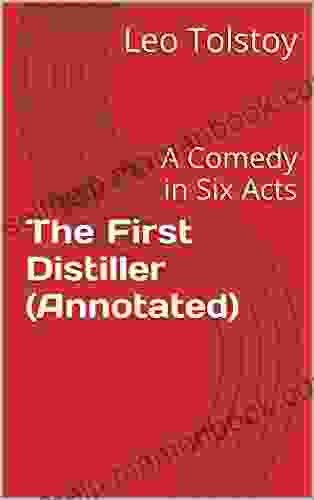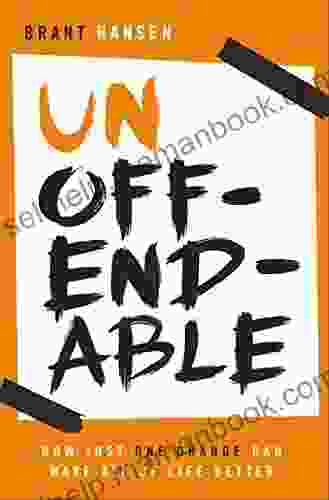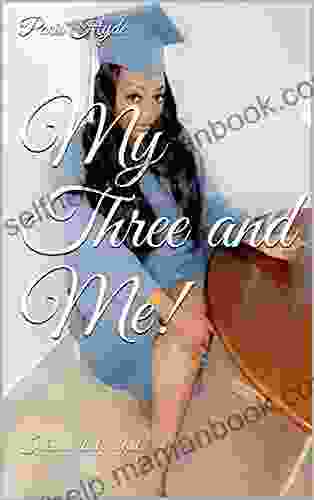The First Distiller: An Annotated History of the Origins of Alcohol

Alcohol has been a part of human culture for thousands of years. It is used in religious ceremonies, social gatherings, and medicinal purposes. But where did alcohol come from? Who was the first distiller?
5 out of 5
| Language | : | English |
| File size | : | 210 KB |
| Text-to-Speech | : | Enabled |
| Screen Reader | : | Supported |
| Enhanced typesetting | : | Enabled |
| Word Wise | : | Enabled |
| Print length | : | 49 pages |
| Lending | : | Enabled |
This article will provide an in-depth, annotated history of the origins of alcohol. We will explore the first distiller and the development of distillation techniques through archaeological evidence, historical records, and scientific research.
The Archaeological Evidence
The earliest evidence of alcohol production dates back to the Neolithic period (8000-4000 BCE). Archaeologists have found pottery vessels from this period that contain traces of fermented beverages, such as beer and wine.
These vessels are often found in association with food remains, suggesting that alcohol was used as a social lubricant during feasts and celebrations.
By the Bronze Age (3000-1200 BCE),the production of alcohol had become more sophisticated. Archaeologists have found evidence of large-scale brewing operations, as well as the first evidence of distillation.
The distillation process involves heating a fermented beverage to a high temperature, which causes the alcohol to evaporate. The evaporated alcohol is then condensed back into a liquid, resulting in a higher-proof spirit.
The first evidence of distillation comes from the Chinese. In the 4th century BCE, the Chinese alchemist Ge Hong wrote about a process for distilling wine to create a more potent spirit.
This spirit, known as baijiu, is still produced in China today and is one of the most popular distilled spirits in the world.
The Historical Records
The historical record also provides insights into the development of distillation. In the 1st century CE, the Roman encyclopedist Pliny the Elder wrote about a process for distilling seawater to create fresh water.
He also mentioned that the Arabs were using a similar process to distill wine to create a more potent spirit.
By the Middle Ages, distillation was well-established in Europe. Alchemists were using distillation to create medicinal elixirs and perfumes.
In the 16th century, the Italian physician Paracelsus published a book on distillation, which helped to spread the knowledge of this technique throughout Europe.
The Scientific Research
Scientific research has also helped to shed light on the origins of alcohol. In the 19th century, the French chemist Louis Pasteur discovered the role of yeast in fermentation.
This discovery helped to explain how alcohol is produced and opened the door to new methods of alcohol production.
In the 20th century, the American chemist Linus Pauling developed a theory about the chemical structure of alcohol. This theory helped to explain the different effects of different types of alcohol on the human body.
The history of alcohol is a long and complex one. The first distiller was probably a Chinese alchemist who lived in the 4th century BCE. The process of distillation was later refined by the Arabs and Europeans.
Today, alcohol is produced all over the world and is used in a variety of ways. It is an important part of our culture and our history.
References
- McGovern, P. E. (2009). Ancient wine: The search for the origins of viniculture. Princeton University Press.
- Noble, R. (1998). Alcohol: A history. Barnes & Noble Books.
- Pauling, L. (1988). The chemical nature of alcohol. Journal of the American Chemical Society, 110(11),3775-3784.
- Pliny the Elder. (1938). Natural history (Vol. 1). Harvard University Press.
- Purcell, W. (2011). The history of alcohol. Prometheus Books.
5 out of 5
| Language | : | English |
| File size | : | 210 KB |
| Text-to-Speech | : | Enabled |
| Screen Reader | : | Supported |
| Enhanced typesetting | : | Enabled |
| Word Wise | : | Enabled |
| Print length | : | 49 pages |
| Lending | : | Enabled |
Do you want to contribute by writing guest posts on this blog?
Please contact us and send us a resume of previous articles that you have written.
 Top Book
Top Book Novel
Novel Fiction
Fiction Nonfiction
Nonfiction Literature
Literature Paperback
Paperback Hardcover
Hardcover E-book
E-book Audiobook
Audiobook Bestseller
Bestseller Classic
Classic Mystery
Mystery Thriller
Thriller Romance
Romance Fantasy
Fantasy Science Fiction
Science Fiction Biography
Biography Memoir
Memoir Autobiography
Autobiography Poetry
Poetry Drama
Drama Historical Fiction
Historical Fiction Self-help
Self-help Young Adult
Young Adult Childrens Books
Childrens Books Graphic Novel
Graphic Novel Anthology
Anthology Series
Series Encyclopedia
Encyclopedia Reference
Reference Guidebook
Guidebook Textbook
Textbook Workbook
Workbook Journal
Journal Diary
Diary Manuscript
Manuscript Folio
Folio Pulp Fiction
Pulp Fiction Short Stories
Short Stories Fairy Tales
Fairy Tales Fables
Fables Mythology
Mythology Philosophy
Philosophy Religion
Religion Spirituality
Spirituality Essays
Essays Critique
Critique Commentary
Commentary Glossary
Glossary Bibliography
Bibliography Index
Index Table of Contents
Table of Contents Preface
Preface Introduction
Introduction Foreword
Foreword Afterword
Afterword Appendices
Appendices Annotations
Annotations Footnotes
Footnotes Epilogue
Epilogue Prologue
Prologue Avery North
Avery North Paul Crickard Iii
Paul Crickard Iii Jean H Dubois
Jean H Dubois Franca Abubokhale
Franca Abubokhale Dinesh D Souza
Dinesh D Souza Arthur Schopenhauer
Arthur Schopenhauer Eleanor Drago Severson
Eleanor Drago Severson Scott Hutchins
Scott Hutchins Tia Monique
Tia Monique Madison Moulder
Madison Moulder Coral Harper
Coral Harper Jim Van Houten
Jim Van Houten Stu Jones
Stu Jones Jon Law
Jon Law Ed Gaulden
Ed Gaulden Margaret George
Margaret George Heinrich Hoffmann
Heinrich Hoffmann Amanda Jernigan
Amanda Jernigan Jess Lourey
Jess Lourey Dave Barry
Dave Barry
Light bulbAdvertise smarter! Our strategic ad space ensures maximum exposure. Reserve your spot today!
 Haruki MurakamiFollow ·18.2k
Haruki MurakamiFollow ·18.2k Edgar Allan PoeFollow ·19.6k
Edgar Allan PoeFollow ·19.6k Braeden HayesFollow ·17.6k
Braeden HayesFollow ·17.6k Chase SimmonsFollow ·10.4k
Chase SimmonsFollow ·10.4k Pat MitchellFollow ·16.2k
Pat MitchellFollow ·16.2k Joseph HellerFollow ·6.6k
Joseph HellerFollow ·6.6k Francis TurnerFollow ·16.5k
Francis TurnerFollow ·16.5k Brenton CoxFollow ·17.2k
Brenton CoxFollow ·17.2k
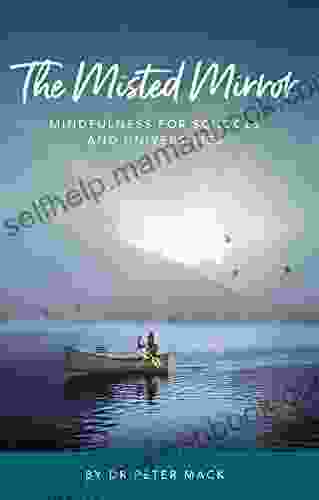
 Boris Pasternak
Boris PasternakThe Misted Mirror: Mindfulness for Schools and...
What is The Misted...
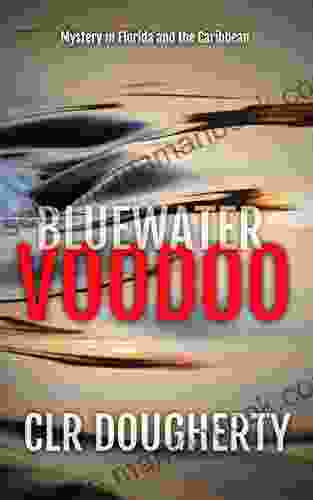
 Holden Bell
Holden BellEmbark on Thrilling Adventures in the Uncharted Depths of...
Unveiling the Enchanting...
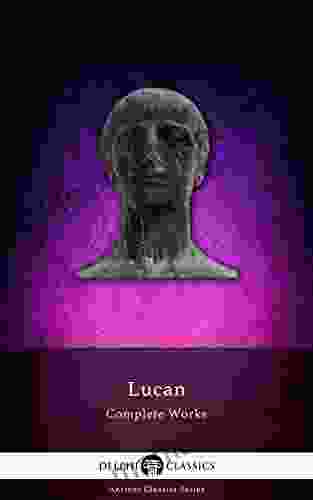
 Seth Hayes
Seth HayesDelphi Complete Works of Lucan: Illustrated Delphi...
This meticulously edited...

 Jackson Hayes
Jackson HayesThe Enigmatic Cat Burglar: Unraveling the Intriguing...
In the annals of crime, the name Bernie...
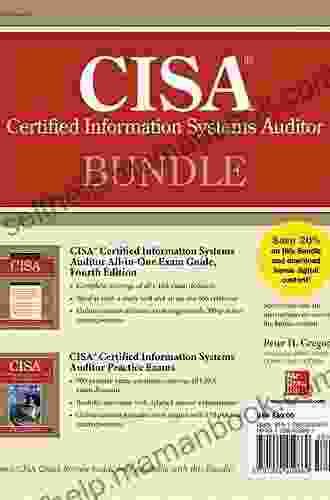
 Quentin Powell
Quentin PowellAligned With The Cisa Review Manual 2024 To Help You...
The CISA Review Manual 2024 is the most...

 Austin Ford
Austin FordUnlocking Revenue Potential: A Comprehensive Business...
In today's digital...
5 out of 5
| Language | : | English |
| File size | : | 210 KB |
| Text-to-Speech | : | Enabled |
| Screen Reader | : | Supported |
| Enhanced typesetting | : | Enabled |
| Word Wise | : | Enabled |
| Print length | : | 49 pages |
| Lending | : | Enabled |


